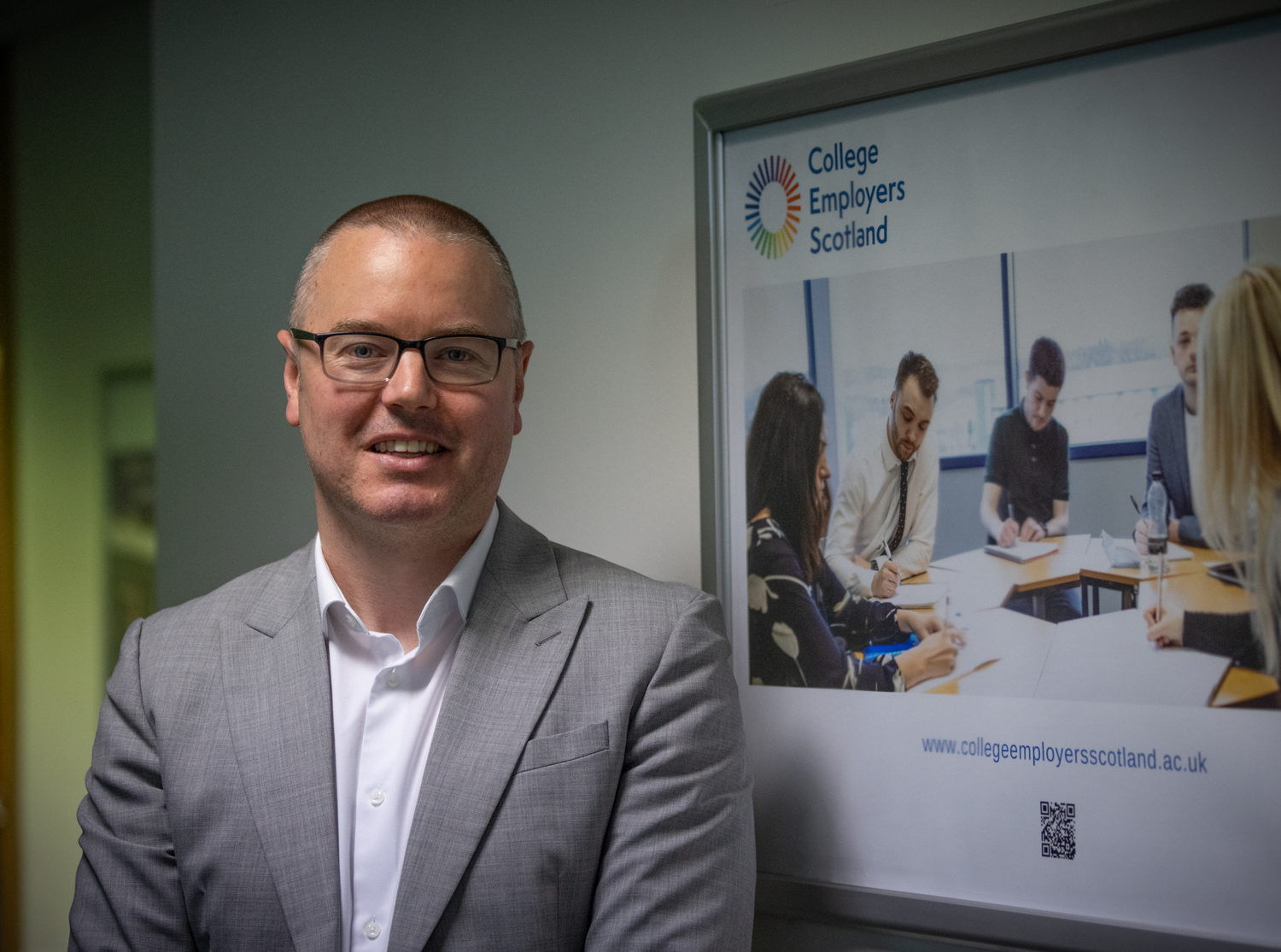UK Disability History Month 2024: Boosting inclusion and equal opportunity at Scotland's colleges

By Gavin Donoghue, Director, College Employers Scotland
In his preface to the World Health Organization’s 2011 World Report On Disability, Professor Stephen Hawking, the revered theoretical physicist, argued that there is a “moral duty to remove the barriers to participation, and to invest sufficient funding and expertise to unlock the vast potential of people with disabilities”.
His message about inclusion is particularly relevant today, at the beginning of UK Disability History Month. Because the reality is that while recent years have seen progress, there is much to do to create a truly level playing field. Take the gap between employment rates for disabled and non-disabled people. In Scotland, this has narrowed by 8.5 per cent since 2013/14, but it was still around 30 per cent in 2023/24.
Then there are covert, more subtle forms of discrimination - for example, assumptions, often unconscious, about whether an individual will be capable of carrying out tasks in certain situations. Having had two previous bosses who were wheelchair users, I have seen at first hand some of these assumptions at play – with able-bodied people directing questions to me rather than my employer, just because I happened to be the one in their eyeline.
How Scotland’s colleges are responding
As Fair Work employers, Scotland’s colleges are determined to remove impediments to success. They want to ensure every staff member, whatever their circumstances, has the chance to progress and excel.
This drive is reflected in the collective decision to pay the increased Real Living Wage from 1 November 2024 - six months ahead of the implementation deadline. As noted in the Scottish Government’s Fair Work First guidance, paying the wage enables access to greater opportunities and can help reduce pay gaps linked to characteristics such as disability. Early roll-out - in the face of significant financial challenges - is an extra step that demonstrates the commitment of colleges to securing good outcomes for staff.
Improvements on the ground
Drawing on initiatives such as the UK Government’s Disability Confident scheme, individual colleges across Scotland have introduced a raft of local measures which are making a real difference.
At the recruitment stage, these include guaranteed interviews for those meeting the essential criteria of a job specification, advance access to interview questions, and invitations to provide information that will lead to better support.
For employees already in post, assistance ranges from flexibility in working hours and location, to bespoke workplace adjustments and specialised equipment. Health and wellbeing are also major areas of focus, with institutions offering access to services such as counselling and physiotherapy.
Another priority is career progression. Colleges aim to help employees look to the future with confidence, engaging with them to draw up personal development and training plans that support the achievement of professional goals.
Crucially, this activity is taking place in a culture of dialogue and openness - where staff are encouraged to make known their disabilities, if they wish, and where awareness training is designed to protect against discrimination and unfairness.

Reasons for optimism
The signs are that this effort is paying off for colleges.
According to Scottish Funding Council figures, the proportion of college employees with a declared disability rose from 5.2 per cent in 2016/17 to 7.5 per cent in 2022/23. Some institutions are experiencing an even faster increase. West Lothian College, for example, has seen a 50 per cent jump over the past four years, while at Glasgow Kelvin College more than 13 per cent of staff have disclosed a disability.
Growth in disability declarations by staff is vitally important, since it indicates an increasing confidence that colleges will respond positively and supportively to personal need. Such inclusion will, in turn, help institutions benefit from the skills and experience of all staff, underpinning the world-class education provided to students.
College Employers Scotland, which represents and advocates for colleges as employers, is proud of the work being done by colleges to support individuals who live with a disability. Our members recently invited staff to talk about their experiences, and what they shared speaks volumes about the progress towards embedding inclusion and equal opportunity across the sector.
To mark UK Disability History Month, we'll be bringing you some of their stories over the coming weeks.
If you would like to access an Easy Read version of this blog, please send an e-mail to


